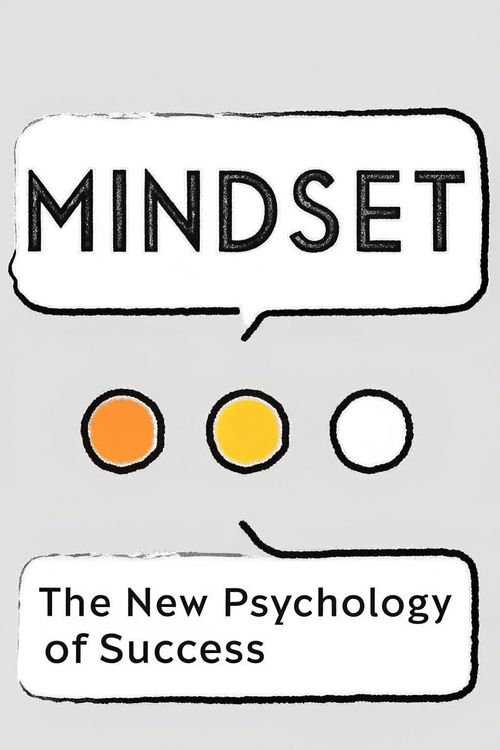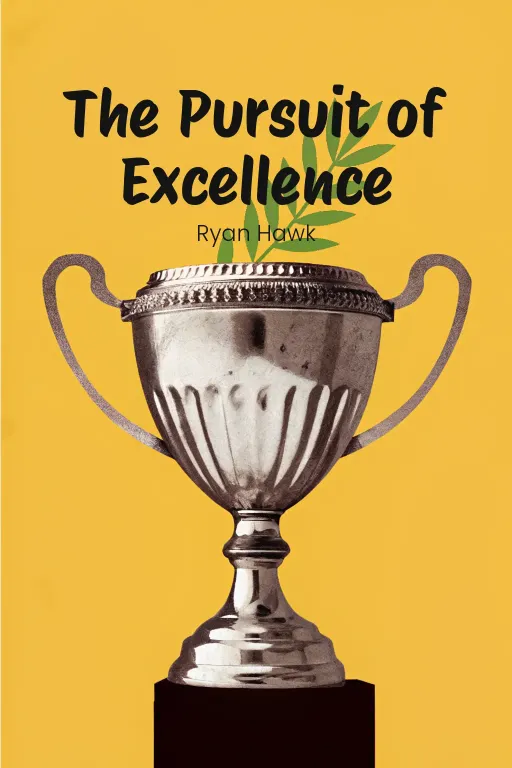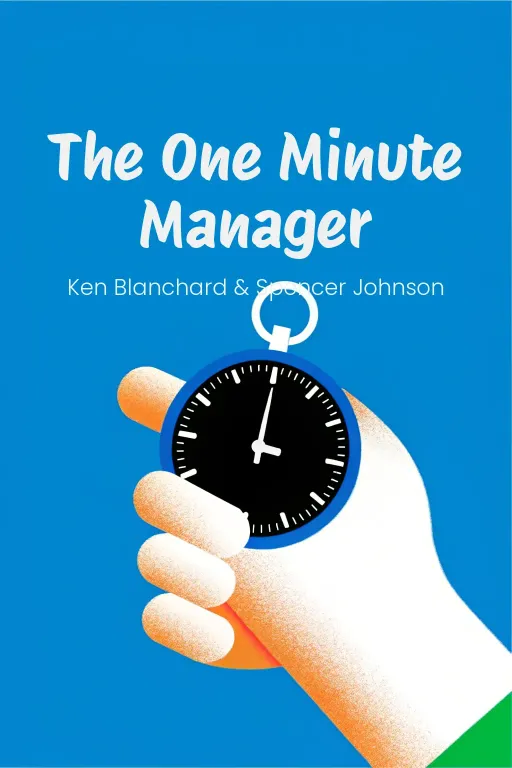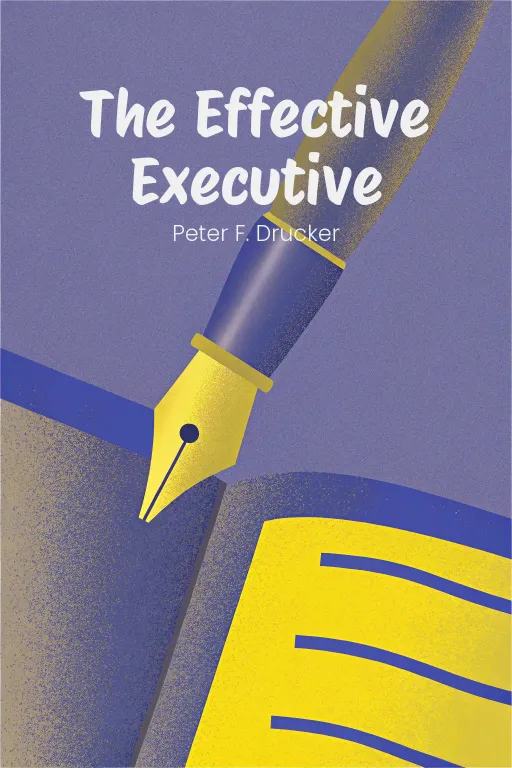
Master Your Time, Maximize Impact
Podcast by Beta You with Alex and Michelle
The Definitive Guide to Getting the Right Things Done
Master Your Time, Maximize Impact
Part 1
Alex: Hey everyone, welcome! Today we’re diving into something that I think is super relevant to all of us: how to actually be “effective” in our careers. Michelle: Yeah, how do you get stuff done without feeling like you’re just spinning your wheels? Alex: Exactly! We’re going to be talking about Peter Drucker's The Effective Executive. I see it as a hands-on guide showing us that effectiveness isn't just some innate talent. It’s actually a skill set you can learn. Drucker gives super practical advice on managing yourself, figuring out what’s important, and making deliberate choices. Michelle: Okay, but Drucker was writing before the internet exploded. So, I guess the big question is, how well does his stuff hold up in today’s always-on, notification-driven world? Alex: That's exactly what we're going to explore. We're going to boil down Drucker's ideas into three key areas. First up: time management. I'm talking about really taking control of your day, like an architect planning a space. Second, we’ll look at making real contributions, how that shifts you from just doing tasks to actually driving change. And finally, we’ll dive into building teams around strengths, maximizing everyone’s, shall we say, superpowers. Michelle: So, the promise is less busywork, more… brilliance? I’m in. Let's put these ideas to the test.
Time Management
Part 2
Alex: Okay, Michelle, so let's dive into time management, which Drucker sees as crucial for being effective. He “really” emphasizes that time is limited. Once it’s gone, it’s gone, right? It's not something you can save up or get back. So, it’s super important to know where your time is going and whether you’re spending it on the right things. Michelle: Time being a finite resource… yeah, that hits home when I think about all those hours I've lost to Netflix. But Alex, everyone knows time's limited. What's Drucker's specific angle here? Alex: He takes that basic knowledge and turns it into something you can actually do something with. First, he says we need to track our time closely. I mean, “really” log where every hour goes, not just think, "Oh, I spend most of my time in meetings." There was this company chairman who thought he spent most of his time making big decisions. But when he tracked his time, he realized he was mostly doing things like ribbon-cutting ceremonies and routine meetings. Michelle: Ah, so he was basically the corporate mascot, right? Alex: Well, that’s one way to look at it! But yeah, reality didn't match his perception. By seeing where his hours actually went, he realized that what he thought was high-value stuff was “really” just keeping up appearances. Michelle: Okay, step one: examine your calendar super closely. But what if you realize, like that chairman, that you're mostly doing unimportant stuff? Alex: That’s when Drucker challenges you to ask: What can you cut out completely? Not just trimming the edges, but “really” hacking away at low-value stuff. There was this hospital administrator who realized that endless meetings were a huge waste of time. They didn't have clear goals, no real purpose, and too many people involved. So, he cut half of them, limited attendance to the essential people, and made sure discussions focused on results. Michelle: That makes sense, although getting rid of meetings sounds like a never-ending battle. But how do you get everyone else to change? It’s one thing to skip meetings yourself, but another to change the culture. Alex: Right, and that’s where Drucker says to lead by example. When you stop wasting your own time and get better results, it has a ripple effect. He suggests asking not just what you can get rid of, but also, What can I delegate? Sometimes we hold on to things out of habit or because we think we’re the only ones who can do them, but delegating can free us up for higher-impact stuff. Michelle: Delegation. The magical solution to effective management… assuming you trust the people you're delegating to, of course. But what about things you feel obligated to do? Like a CEO who goes to networking dinners every night? They seem important, even if the benefit is questionable. Alex: Exactly! Drucker had another story about this. This CEO thought all those events were essential for making connections and growing influence. But when he analyzed his time, he realized most of those dinners weren't actually helping the company. So, he made the tough choice to be selective about which ones he attended. As a result, he freed up time for more strategic work, and the events he did go to had more impact. Michelle: It’s nice to hear stories that show getting rid of things is valuable. So, we've talked about cutting out and delegating. What about the time that's left over? I bet the hours left in the day can still feel fragmented, right? Alex: Spot on! That's where Drucker's idea of consolidating discretionary time comes in. Once you've cleared out the clutter, you need to protect those blocks of time from being interrupted. Think of that bank president who didn't spread his time across short meetings one after another. Instead, he set aside regular, uninterrupted blocks—even just 90 minutes—to focus on important issues. Michelle: So, no more multitasking or trying to solve problems in tiny windows of time? Consolidating time sounds good, but is it realistic with back-to-back Zoom calls these days? Alex: It's a challenge, but not impossible. Drucker's advice helps: block out periods for focused work. Some people have "no-meeting days" or use scheduling tricks to reserve time for high-impact tasks. And if you do it right, it's not just good for the executive—it helps the whole team. Michelle: How so? Alex: Well, knowledge workers, for example. They need to “really” dig into complex problems, which can’t happen in small bursts. Drucker says leaders need to value and protect that deep-focus time—for themselves and their teams. If you constantly interrupt people with random requests or meetings, you're hurting their ability to think and be creative. Michelle: So, it's not just about managing your own time, but creating a culture where time is respected as a resource across the company? Alex: Exactly. Time management isn't just a personal trick; it's a system-wide discipline. When leaders show these principles and support them, the whole organization becomes more focused, deliberate, and effective. Michelle: Okay, I see that Drucker’s approach is more complex than I thought. It’s not just being obsessed with your calendar, it’s about using time strategically— cutting out the waste, focusing, and making space for meaningful work. Alex: Exactly! Time management, in Drucker's way, is the cornerstone of effectiveness. You take back your hours, refocus, and make decisions with clarity and purpose. You know, it’s hard to feel like you're just running in circles when you're the one designing the course. Michelle: Well said. Now I’m a little scared to ask, but what’s next on Drucker’s list?
Focus on Contributions
Part 3
Alex: So, by really focusing on time management, executives can finally shift gears from just being busy to making real contributions. That's where Drucker takes us next – this whole idea of prioritizing what actually matters, you know? Not just your personal output, but impacting the organization as a whole. It’s focusing on contributing. Michelle: Okay, Alex, but I hope this isn’t just another rah-rah session about “making a difference.” Where does Drucker draw the line here? Between feel-good fluff and actual advice on what real contributions should look like? Alex: Well, Drucker starts by redefining success itself. Instead of measuring success by how many boxes you tick or how “busy” you seem, he says we should be asking: “What contribution can I make that’ll truly matter?” It’s a shift in mindset. Stop focusing on being busy for the sake of being busy, and instead, judge your work by the real impact it has on what the company’s trying to achieve. Michelle: Hold on a sec, Alex. Sounds great, but in most workplaces, you’re just firefighting all day. How are you supposed to stop and think about the big picture when your inbox is already exploding at 9 a.m.? Alex: That’s a fair point. Drucker says you have to make this a habit, a discipline. It's not about ditching your immediate tasks. Instead, it’s about linking those tasks to a bigger question: "Does this help the company get closer to its goals?" Take Theodore Vail, for example. He was the president of Bell Telephone, and people remember him for completely changing the company’s mission. Instead of just focusing on profits, Vail said their main purpose was service. He even made it their motto: "Our business is service." Michelle: Wow, that's pretty bold. Especially back then, huh? Redefining success, like that? I bet he got some pushback from people who just wanted to see those profits for the quarter. Alex: Exactly! But it worked because he stressed contributions that built long-term value. One of the smartest things Vail did was judge his managers not just on how well they were doing financially, but on how well they helped the company achieve its service goals. This made them prioritize community impact, satisfied customers, and coming up with new ideas, rather than just chasing short-term gains. As a result, people really trusted the company, which led to steady growth. Profit followed serving, not the other way around. Michelle: So, first, you have to rewire your brain – success is about the wider impact, not just doing your tasks. Forgive me, Alex, if this sounds a bit pie-in-the-sky for the average manager who’s still got targets to hit. How does this actually work in practice? Alex: Drucker gets really practical. He breaks it down into three main things that organizational contributions should focus on: producing measurable results, sticking to your core values, and developing future leaders. Michelle: Okay, that's a bit more structured. Let’s start with results. What does “results” really mean in Drucker’s world? Is it just hitting your KPIs? Alex: Good question. Drucker says real results aren’t just random outcomes. They're measurable impacts that are connected to the company’s overall mission. Like, say you’re a healthcare administrator trying to deal with tight budgets and more patients. Instead of trying to do a million things at once and spreading yourself too thin, Drucker would suggest focusing on a few key priorities that can have a big effect. Maybe it’s improving staff training or making health record systems more efficient. You want to tackle problems in a way that helps the organization achieve its goal of better patient care. Michelle: So, instead of trying to do everything, you focus on the things that will actually make a real difference? Alex: Exactly. And focusing on meaningful results works with sticking to your core values. Drucker warns against making quick decisions that don’t align with what the organization believes in. Michelle: Uh oh, this is where things get messy. I love the idea of sticking to your values, but company priorities often clash – profits versus ethics, quick wins versus long-term trust. How does a good executive handle those conflicts? Alex: Drucker uses the example of an airline that was struggling because it wasn’t prioritizing its core values. It was trying to balance making money, keeping customers happy, and meeting government requirements without really knowing what it stood for, right? It ended up paralyzed. It couldn’t really satisfy anyone because it wasn’t acting according to a clear and shared set of values. The important takeaway here is that defining and sticking to core values isn’t just about ethics, it’s a strategic imperative. If your actions go against your values, people will stop trusting you, and that weakens the organization in the long run. Michelle: So good leadership isn’t just about doing what’s good for the business today. It’s about making sure the business is aligned with what it should stand for. Got it. But let's talk about the third aspect: future leadership. How do contributions extend to developing talent? Alex: This is something that people often forget when they’re in the thick of things. Drucker says that if executives want to leave behind a legacy, they need to make developing the next generation of leaders a priority. Imagine a CEO who was only at a big company for a short time. Instead of focusing on personal gains in the short term, they spent their time mentoring up-and-coming managers and creating professional development programs. They may not have been CEO for long, but they left the company with a strong group of future leaders who could carry the organization forward. Michelle: Okay, I get that. You’re planting seeds that you might not see grow yourself, but you’re ensuring that leadership stays strong. Alex: Exactly. Executives can’t be so caught up in current results that they don’t invest in developing skills for the future. Drucker’s point is that the most impactful contribution a leader can make is often not something you can see – creating a sustainable system that encourages people to take responsibility, come up with new ideas, and adapt to change over time. Michelle: And speaking of new ideas, let's bring it back to how focusing on contributions affects creativity within the organization. How does encouraging accountability fuel problem-solving? Alex: Ah, perfect segue. Drucker points out that when executives and teams focus on contributions, they go from just finishing tasks to actually finding solutions. Think about the former head of publications for a major agency. His polished reports seemed impressive, but they didn’t “really” connect with their intended audience. His predecessor had created way more interest with less polished, more passionate work that resonated with young scientists. It was clear: looking perfect on the surface doesn’t equal real impact. Michelle: So, focusing too much on the tasks at hand blinded them to what their audience “really” needed? Alex: Exactly! When you focus on the contribution you’re making, it puts the outcome – the audience’s engagement – over the procedure or the appearance. This inspires creativity, because you start asking, "What needs to happen to actually make a difference?" instead of, "How can I just follow these predefined steps?" Michelle: Makes sense. And this ties back to a bigger cultural shift Drucker promotes. Fostering open dialogue within teams so people can voice their real challenges. Alex: Yes. Drucker encourages executives to ask simple but powerful questions like, “How can I contribute to your success?". And it's not just lip service - when leaders “really” listen and seek feedback, it builds a culture of trust and accountability that motivates teams and fuels innovation. Michelle: Alright, from reframing success to creating systems for collaboration, this idea of focusing on contributions is strategically powerful. It’s less about individual superstars and more about building a resilient and impactful team. Alex: Exactly, Michelle. Drucker isn’t just asking for individual change, he’s asking leaders to create a movement towards greater accountability, long-term value, and sustainable progress. That’s the “real” essence of contributions.
Leveraging Strengths
Part 4
Alex: So, by zeroing in on what each person brings to the table, executives can “really” maximize everyone's effectiveness, right? That brings us to Drucker’s idea of leveraging strengths. He talks about making strengths productive first, then putting together diverse teams, and even changing roles to fit different talents. And he wraps it up with practical steps for hiring and growing those strengths in a company. It's basically a guide for rethinking how leaders see potential in their people. Michelle: Leveraging strengths, huh? Sounds like something you'd see on a motivational poster. “Unlock your inner whatever.” I bet Drucker goes deeper than just that though, right? Alex: Absolutely. The core of Drucker’s idea is about turning the usual way of thinking on its head. Leaders often spend so much time trying to fix weaknesses, trying to make people fit into roles they're not suited for, instead of building on what they're already good at. Drucker says, "Forget about fixing weaknesses. Build your team and your company to take advantage of strengths." Michelle: Yeah, that makes sense. So instead of trying to jam a square peg into a round hole, you find out what someone's good at and let them shine. Can you give me an example of how this actually works? Alex: Absolutely, think about General George Marshall in World War II. He was brilliant at figuring out the strengths of his officers, without getting caught up in what they weren't good at. Some officers were great at battlefield strategy but terrible at paperwork. Instead of ignoring them, he put them in roles where they could make quick decisions under pressure. Michelle: Right, by putting people where they excel, you get their best work instead of trying to force them to improve in areas where they'll never be great. But what about the weaknesses? Do they just get ignored? What if someone's weak spot affects their job? Alex: That’s a great question, and Drucker does talk about that. It's not about pretending weaknesses don't exist, but about minimizing their impact. Marshall paired those strategic thinkers with people who were good at administration. So, it's about creating partnerships where one person’s strengths cover another’s weaknesses. The focus changes from individual perfection to team productivity. Michelle: So, the team becomes like a puzzle, where each person brings a unique piece, and together they complete the picture. But, Alex, not every company has a General Marshall running things. How can the average manager figure out what their team members are “really” good at? Alex: It comes down to watching and talking. Drucker says leaders need to “really” pay attention to what energizes their team, where they consistently do well, and then match their roles to those strengths. Sometimes it also means changing roles to better fit a person's talents. For instance, Drucker doesn't like it when people are promoted into roles they're not suited for, like promoting a great engineer to a manager just because it's "the next step." Michelle: That's a classic mistake. Promoting top performers into roles that have nothing to do with their strengths. It's like asking a fish to climb a tree. Got any examples of when changing a role “really” made a difference? Alex: Yes, think about the world of marketing. Imagine someone who's amazing at coming up with creative campaigns but terrible at managing the day-to-day details. Instead of forcing them to adapt, where their creativity gets stifled, Drucker would say to redesign the role. They could lead brainstorming sessions, while someone who's good at structure and process handles the operations. Michelle: Okay, that makes sense. But what if you don't have that much flexibility? I mean, not every company can change roles for every employee. Alex: True, and that's when having diverse teams becomes even more important. Drucker says that teams should be built on purpose, with different kinds of people. Not just different demographics, but different ways of thinking, different skills, and different approaches. When done right, a diverse team balances everyone's strengths and makes sure no one's weaknesses bring down the whole team. Michelle: So instead of creating a special role for every fish in that tree-climbing contest, you just make sure you have some squirrels on your team, too. Alex: Exactly! Think about Franklin D. Roosevelt's administration. He didn't surround himself with yes-men. He deliberately included advisors who disagreed with him, some who even criticized his policies. This diversity of thought was crucial. It created discussions, challenged assumptions, and ultimately led to better decisions. Michelle: And still, most leaders probably don't want to hire people who are going to constantly criticize them. Alex: That's what Drucker points out. Leaders tend to hire people who are like them, who think the same way. It's comfortable, but it's also risky. You get groupthink, innovation stalls, and weaknesses aren't addressed because everyone has the same blind spots. A good leader has the discipline to seek out different points of view, even when it's uncomfortable. Michelle: Easier said than done, right? A lot of workplaces don't like dissent. How does Drucker suggest getting past that? Alex: It starts with redefining what success means for the team. Success isn't about everyone agreeing; it's about getting results by using everyone’s strengths. Leaders need to see different perspectives as contributions, not conflicts. By framing diverse perspectives as assets, you create an environment where collaboration can actually happen. Michelle: Okay, I get the concept. But putting together a diverse team that works well together sounds tricky. How do you stop those disagreements from turning into problems? Alex: That’s another good question, and Drucker does address it. He says that hiring starts with clearly defining the role. Not in a strict, inflexible way, but in terms of what needs to be accomplished and what strengths are needed. When you assess candidates based on their abilities and how they fit with the team's needs, instead of just checking off technical skills, you avoid a lot of potential problems. Michelle: Let me guess, Abraham Lincoln’s "Team of Rivals" is coming up now? Alex: Of course! Lincoln's Cabinet was a perfect example of purposeful hiring. He brought together people who not only disagreed with each other but also with him. That team didn't avoid debate, but each member was chosen for their unique talents, which complemented each other. Lincoln didn't hire based on loyalty; he hired for strengths. Michelle: Still, managing those personalities must have been a headache. How did Lincoln keep the tension from undermining him? Alex: It was definitely a challenge. But Lincoln created a culture of mutual respect and centered every disagreement on what was best for the Union. By making the organization’s mission the shared goal, personal conflicts became less important than the bigger picture. Michelle: So, the secret to building a high-performing team isn't just about finding the right people; it's about creating the right environment. Keep the focus on the overall goals, and the individual quirks or clashing styles will naturally fall into place. Alex: Exactly. Drucker’s approach to leveraging strengths is more than just a hiring plan; it’s a leadership philosophy. By building on strengths—through changing roles, creating diverse teams, or hiring strategically—you unlock not just individual potential but achieve collective excellence.
Conclusion
Part 5
Alex: Okay, Michelle, let's wrap things up. Today, we really dug into Peter Drucker's super practical, even timeless approach to being an effective executive. From, you know, managing time like it's a seriously limited resource, to seeing success as making real contributions, and using strengths—both your own and everyone else's—Drucker basically gives us a toolkit for leading with real intention and clarity, right? Michelle: Right, and it's not just about being a productivity guru or ticking off items on a list. I think Drucker really pushes leaders to rethink their whole approach—cut out the unnecessary stuff, hone in on what makes a difference, and foster environments where peoples' talents can “really” shine and teams can flourish. I mean, it's almost like completely rewriting how we think about work and what leadership even means. Alex: Totally. And I think Drucker's point is pretty clear: being effective isn't something you're just born with; it's a skill you develop. It's a matter of asking the tough questions, making conscious decisions, and making sure that everything aligns with your purpose. It’s less about trying to cram more into your day, more about focusing on what actually matters. Michelle: So, something to think about: Are you actually investing your time, or just spending it? Are the things you're doing every day actually contributing to something bigger, or are they just filling the void? Ask yourself, what are you good at, what can you get rid of, and, ultimately, what kind of mark do you want to leave? Alex: Exactly, and I think that's the challenge Drucker lays down for all of us, really. Whether you’re a manager, a team leader, or anyone aiming to make an impact, his lessons are worth revisiting. Start with his principles, give them a try, and see what happens. I think the biggest hurdle is often just getting started but, like Drucker would probably say, effectiveness always starts with action. Michelle: And maybe, just maybe, a brutally honest look at how you're spending your time. Alex: Exactly! Well, thanks for joining us, and until next time, remember: being effective isn’t about doing everything; it’s about doing the right things well.









